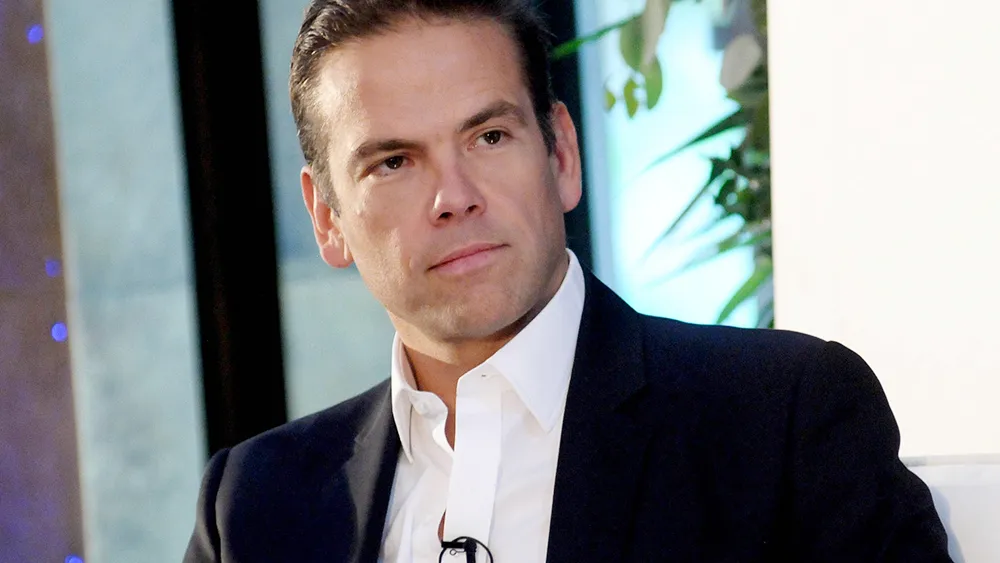
Lachlan Murdoch just won control of his family’s two media companies, Fox Corp. and News Corp., after a fractious and much-scrutinized legal scrum among the eldest children of founder Rupert Murdoch. Now the hard part begins.
The Murdochs’ empire has thrived in the streaming era, even though Fox slimmed down by selling its cable and studio assets to Disney in 2019. Indeed, Fox is small compared to Netflix, Amazon, Disney or Apple, and would be dwarfed by the combination of other rivals, such as the potential pairing of Paramount and Warner Bros. Discovery that was hinted at in press reports by the former corporation last week. In short, Lachlan Murdoch takes unequivocal leadership of Fox as its competitors grow even bigger.
Fox has fared well because it has bet heavily on sports, news and live events — the main formats that still generate large, simultaneous audiences in an era of on-demand streaming. As a result, Fox continues to win ad money and distributors see value in paying its carriage fees. “The strategy was set back in 2019 when we sold majority of our entertainment assets to Disney,” Lachlan Murdoch told investors at a conference last week “And that strategy has proven to be prescient in its success and where we’ve positioned ourselves in the media ecosystem.”
With his family’s squabbles settled — siblings James, Elisabeth and Prudence accepted buyout offers last week — Lachlan Murdoch is poised to put new focus on changing audience demographics across his family’s Fox Corp., perhaps the most entrepreneurial of the mainstream media conglomerates. In the past, Fox was unafraid to break industry convention, whether that meant launching an action series that followed its protagonist in real time (“24”), or testing technology that let advertisers insert or remove images or copy lines to make their commercials more appealing to viewers
Lachlan Murdoch has tried to carry on the family tradition. Under his aegis, Fox, once known for being reluctant to join the streaming wars, has moved more aggressively into them. Fox now operates three streaming services – the free, ad-supported Tubi; Fox One, a subscription outlet aimed at cord cutters who want to see Fox’s TV sports and news and opinion programming; and Fox Nation, a subscription venue that offers lifestyle programs to the Fox News faithful What’s more, Fox News Channel, the company’s key financial engine, has quietly put in place a range of younger hosts and anchors across its schedule as executives are placing added emphasis on digital outreach via YouTube and other outlets.
And the company has formed an interesting suite of content alliances in recent months. Fox News is licensing the popular conservative “Ruthless” podcast and making its lead personalities contributors to shows on the cable network. Fox Sports has tapped Barstool Sports founder Dave Portnoy to take part in programming.
Such moves carry risk. Fox still gets its main source of revenue by broadcasting video to traditional — read: older — audiences. Which leaves Lachlan Murdoch doing a balancing act. Move too slowly in the digital arena, and Fox will lose new sources of cash. Move too quickly, and the die-hards who flock to Fox News and Fox Sports will take umbrage.
“We will continue to focus on our traditional brands,” Lachlan Murdoch vowed at the investor conference
But Fox sees no reason not to add a little digital pizzazz. Fox News, which courts an older linear audience, has put new focus on its reach via YouTube, X, TikTok and Instagram, among other venues. In August, for example, Fox News’ YouTube channel generated 386.2 million views, according to data from Emplifi, a social-media analytics consultant – more than any in its direct competitive set. The new Fox One is aimed specifically at cord-cutters and helps Fox bring younger audiences to its suite of NFL and college football games as well as Major League Baseball’s post-season. And the company is striking new alliances with indie creators across its portfolio.
Fox may still face obstacles in its path. The company continues to wrangle in the courts over a second trial tied to election fraud claims made on Fox News Channel in the wake of the 2020 presidential election. Fox already paid $787.5 million to settle similar litigation from Dominion Voting Systems and seems poised to go to court to answer defamation claims from another election technology firm Smartmatic, which is seeking $2.7 billion in damages. And while Fox once had very few wrinkles to deal with tied to streaming, it now has three different outlets, which could become cumbersome over time, depending on how they develop. Already, Fox One has picked up a true crime show led by Nancy Grace that also fits the purview of Fox Nation, while Fox Nation has made a deal to show bull-riding matches, even though sports are the province of Fox One.
The company may also seek to burnish other areas of business. Fox has kept a clear eye on the potential for U.S. sports betting. The company holds a 2.5% stake in online sports-wagering giant Flutter Entertainment, and an option to acquire 18.6% of Flutter’s FanDuel, the largest U.S. sportsbook, by 2030. But the company must be licensed to move forward.
“We think they’re tremendous investments. We are very committed to them. We are committed to becoming a licensed company so that we can exercise that option,” Lachlan Murdoch said. “We’ve already engaged with 26 states for licensing. That process is at its initial stages. It can be complicated.” Resolving Fox’s family-control issues, he said, “actually will make that licensing process much more simple.”
The end of family drama leaves Lachlan Murdoch free to pursue Fox’s current direction without the threat that his efforts might be overturned in years to come. The settlement, he told investors “gives us clarity about our strategy going forward. It shows that our strategy will be consistent.”



